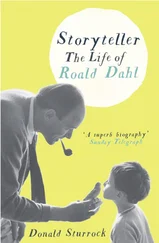A rumor began to circulate that had purportedly started at the funeral home. It was said that when Martin’s body was being prepared for embalming, the bandage on his left hand was removed and that Lily’s name had been carved into the skin of his hand below the knuckles. Bert told Lily one morning in the cafe to stop Boomer from spilling the beans first.
Lily said nothing. She looked at Bert for a moment, then turned away and stared at Division Street through the window.
Bert touched Lily’s arm from behind. “He’s dead, Lily. It doesn’t matter anymore.”
Since Martin’s death, Bert had left groceries for Mabel and Lily, had baked pies and cooked casseroles and delivered them without waiting for thanks. She had called Lily every day to “shoot the breeze” and had pretended that Lily was holding up her end of the conversation.
“It will blow over, Lil’,” she said.
Lily looked down at her apron. “There’s something wrong with me, Bert. I can do everything — work, eat, sleep, talk — but I don’t want to do any of it.” Lily didn’t look at Bert’s face, but she grabbed her friend’s hand and squeezed it. “It’s like they smell the corpse on me, Bert. Sometimes, I think I smell it.”
Bert looked down at her own hand.
Lily felt a shudder go through Bert’s fingers, and she let go.
Later that day, the day she heard about Martin’s hand, Lily covered the mirror in her room. She didn’t explain this act to herself, but she draped her bathrobe over the mirror and left the medicine cabinet open in the bathroom so she didn’t have to see herself there. She didn’t spend a lot of time in her own apartment anyway except to change her clothes. She lived with Mabel now, although neither of them had said this in so many words, and she avoided Mabel’s two mirrors rather easily. They were both small.
One evening, Mabel lifted her manuscript off her desk and told Lily it was time she read it to somebody, and that was how their nightly reading began. Mabel’s book was much simpler than Lily had imagined. It began: “My first memory is of my mother. She is squatting on the floor with her arms open and I am walking toward her.” Mabel’s first memories were isolated fragments that she told in high detail — a tablecloth with green glasses on it, her brother naked in the outhouse and a dead cat. At about seven, her memories became more continuous, and she began to tell the story of her childhood in South Dakota and to recount early dreams she could remember. Lily liked the dream Mabel read to her about flying over a city and rescuing her brother from a witch who lived in a shack that was covered with newspapers.
Lily discovered that the reading was her favorite part of the day. Sometimes they read in bed. Mabel would sit up with pillows behind her, and Lily would lie with her head down and listen to the years go by slowly or quickly, depending on the events recorded. In the book Mabel often poked fun at her younger self, and she and Lily laughed together. Lily thought it odd that she could laugh at what was written in the book but found nothing in her own life funny anymore. When Mabel arrived at the page that told of her mother’s death, Lily cried for the first time since the day she had found Martin in the cave.
The two women had gotten used to the business of sleeping together. At first Lily had held herself tightly against the edge of the bed, conscious even in her sleep of the old woman’s body, but that awareness disappeared, and often they would wake up entangled in each other — an arm or a leg thrown over the other — and after the first few times, they didn’t bother with apologies.
As it turned out, Mabel had been keeping a secret. The woman read the passage that revealed it in the same voice she had read every other page. In Chicago, when Mabel was eighteen years old, she had found herself pregnant, poor and alone after she had left Owen Hartwig at the courthouse. She gave the baby away — a little girl — and she had never been able to find her. She didn’t know whether her daughter had lived or died or what her name was. “It’s such an old story,” Mabel read to Lily, “an old, familiar story, told over and over again, but that doesn’t make the grief of it any less. I never gave away the things I salvaged from that room — the table, the keys and the bird’s nest. That was where the woman from the adoption agency gave the speech that persuaded me to give up my daughter. It was a bad speech, full of clichés and tired rebukes. Even then, I knew how stupid it was, but I memorized it and have never forgotten it. As she talked, I fixed the words onto the various objects in the room and burnt them into my mind. It wasn’t a long speech.”
Lily turned over in bed and looked at Mabel. “What did you name her, Mabel?”
“Anna,” said Mabel. “Anna Wasley.”
“Isn’t Wasley your married name?”
“I was a bluestocking, Lily,” Mabel said. “I never changed my name.”
* * *
By the second week of July, Lily realized that she hadn’t menstruated. Ed had not written or called. His disappearance was so absolute that he no longer seemed real to her. Mabel told her that he had paid the July rent at the Stuart Hotel and that she expected him, but Lily did not. Still, there had been days when she had wanted to call him, when she believed he wanted to hear from her, days when she hoped. She had his telephone number and address on a little piece of paper that she kept on her night table, and once she had gone so far as to dial the number. But after listening to a single ring, she had hung up. Lily had been afraid Elizabeth would answer. She had started a letter to him as well, but when she had read it over, she hated every word she had written and threw it into the wastebasket. She felt her belly often, examined it for signs of some change, some indication of fetal life, but she couldn’t tell. Although she stayed away from mirrors, she looked at her arms and legs and feet often and felt them with her fingers. Sometimes when Mabel read to her, Lily stroked her arm over and over or rocked herself in the bed. Mabel brushed Lily’s hair before work and laid out her clothes. Once she put out lipstick and a small mirror on the table. Lily knew it was a hint, but she ignored it. She didn’t go to the doctor. If she was pregnant, she wouldn’t change it anyway. That was for other people.
Lily read the police log twice a week as soon as the Chronicle came out. She was waiting for someone to find the doll, but nobody did. There were three unusual sightings during the month of July, however: a UFO over Dundas, a ghostly cowboy running in the direction of the public pool and another angel. The angel was spotted in the Klatschwetter field, maybe by Mrs. Klatschwetter herself, although no name was mentioned, and it caused a rash of angel jokes in the cafe for about a week. Lily didn’t believe a word of these reports, but it seemed to her that somebody out there was making fun of her. When Lily mentioned the angel to Mabel, she paused for a moment and said, “I think you should go to the cemetery and see Martin Petersen’s grave, Lily.”
“What?”
“Just as I said. I’ll go with you if you like.”
Lily didn’t answer Mabel, but she started thinking about Martin’s grave. Did it have a stone yet? Would there be writing on his headstone or just his dates? Had they put him beside his mother? Lily hugged herself and shut her eyes on Mabel’s sofa. She remembered Martin talking about the doll as a thing “between.” Why did she feel that his grave was between, too, that it was between her and Martin.
“They’re casting for My Fair Lady at the Arts Guild, Lily. Auditions are in two weeks.” Mabel’s sharp voice cut Lily off from her thoughts. She looked at her.
Читать дальше












